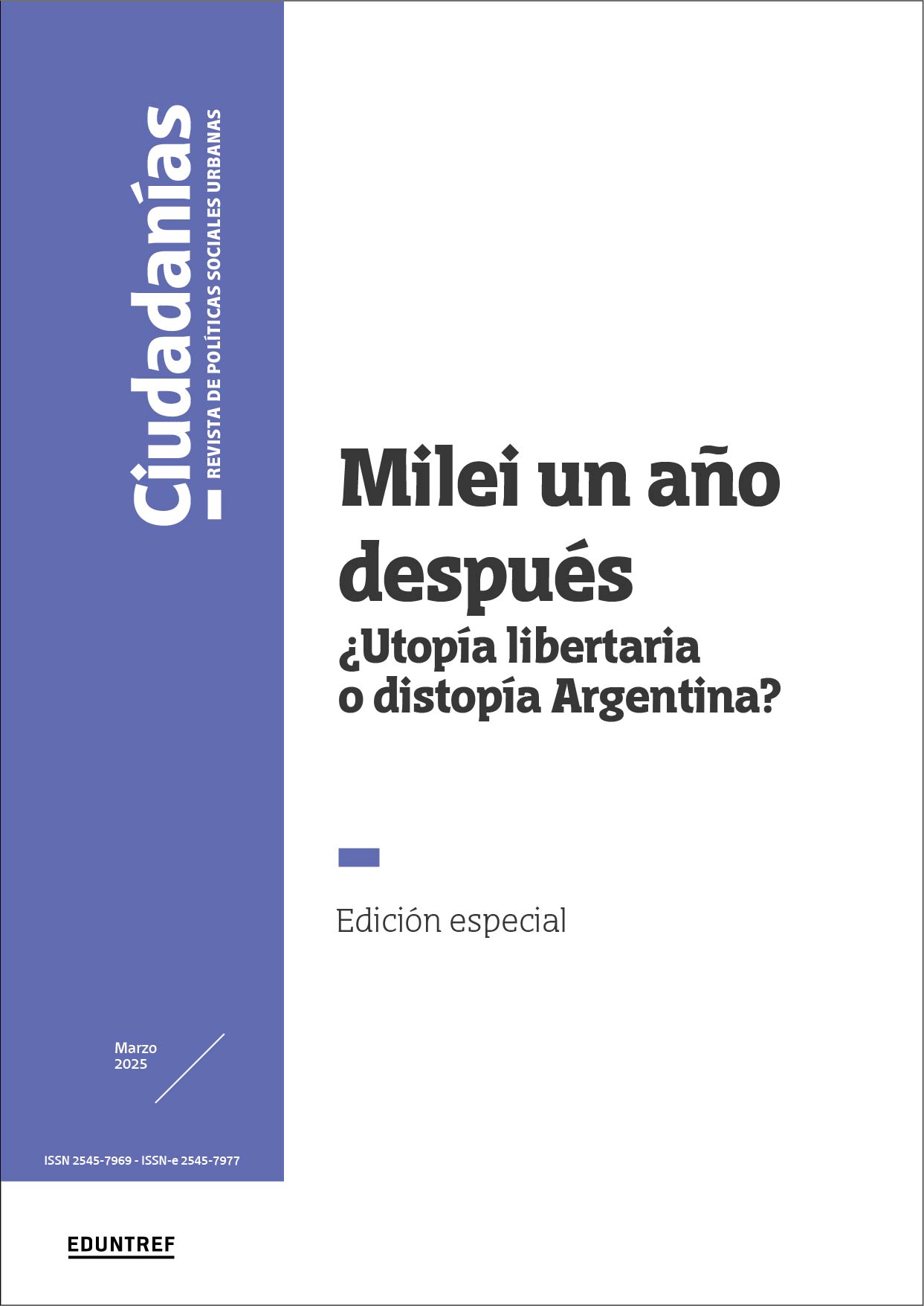Resumen
Este artículo examina cómo durante el primer año de gobierno de La Libertad Avanza (LLA) la sociedad argentina se encuentra profundamente dividida entre un sector oficialista empoderado simbólica y políticamente, y otro que desconfía y se opone al gobierno, pero cuya voz pública se vio inhibida. Esta división refleja una compleja mezcla de esperanzas en un cambio refundacional, rechazo al pasado político, y represión (simbólica y material) de las voces opositoras. A partir de un trabajo de campo centrado en las experiencias de sectores medios empobrecidos y sectores populares del Área Metropolitana de Buenos Aires (AMBA) apostamos a recomponer lo que llamamos la mirada social de la política. El artículo concluye que en el primer año del gobierno de Javier Milei se han abierto dos procesos simultáneos: la consolidación de las posibilidades de transformar el cambio electoral en un cambio histórico y a su vez la consolidación de una polarización social y política con consecuencias aún impredecibles.

